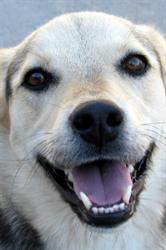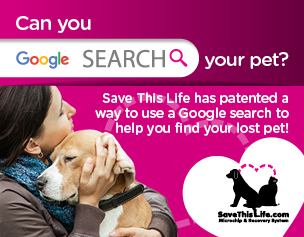Joining in the Fight Against Gum Disease

Periodontal disease, also known as gum disease, starts when plaque begins to form on an animal’s teeth. Typically asymptomatic in its earliest stages, as gum disease advances it can become a serious problem.
Signs
The most serious clinical signs of gum disease include:
- Chronic pain
- Inflammation
- Eroded gums
- Bone loss
- Tooth loss
Dental Care and Gum Disease
When talking to clients about their pet’s dental care needs it may be helpful to inform them of the following:
- Gum disease is a very common diagnosis, in fact dogs are diagnosed with gum disease five times more often than humans.
- Since there is often no evidence of the disease until it has reached an advanced stages, it is especially important to establish routines that focus on good pet dental care.
- With proper dental care, gum disease is often preventable.
Home Dental Tips
Helping clients establish a plan for their pet’s dental care should begin by holding a discussion of the dental practices that can be introduced at home. Advice to offer clients on home dental care guidelines may include:
- Diet
- Dry kibble is abrasive and will help to keep a pet’s teeth clean.
- Clients who prefer canned food should offer dry biscuits and treats to aid in the prevention of plaque and tartar buildup.
- Appropriate Chewing Items
- Giving pet chewing items that are too hard could cause their teeth to break or splinter.
- Chewing items are available that are specially designed and/or treated to reduce plaque and tartar build up and will not harm teeth.
- Brushing
- Start a brushing regimen when the animal is young before plaque gets a chance to form over teeth.
- Setting-up and following a daily dental regimen will help to reduce the animal’s chances for gum disease.
- Routinely brush teeth and gums using a brush and toothpaste made for animals, not for people.
- If the animal develops periodontal disease, advise clients to establish a more vigilant routine after discussing additional options, for example:
- Adding the use of a preventive oral spray, rinse or gel that is designed to help remove tartar and plaque and to control bacteria.
Symptoms
Even if their animal is gum disease free, clients should be advised to watch for the signs that could indicate the development of gum disease, for example:- Difficulties when attempting to eat or pick up food
- Eating on only one side of the mouth
- Dropping food
- Shying away from having their head touched
- Blood on chew toys or in the water bowl
- Bloody gums
- Red, irritated gums
- Bloody or thick, ropey saliva
- Bumps or lumps inside the mouth
- Abscesses
- Loose teeth
- Halitosis
- Nasal discharge consisting of mucous or blood
- Sneezing
The Need for Routine Examinations
Reminding clients to maintain routine dental examinations can prove beneficial especially when an exam identifies the need for veterinary intervention. Clients need to know that even the smallest of health or behavioral changes can indicate the start of a problem, and that having an established dental history helps their veterinarian with early detection and diagnosis.
Advising clients of the importance of an established routine dental examination can be completed using the following information:
- Starting an animal’s dental records by completing a primary dental examination and evaluation helps to determine a foundation for their dental history.
- Scheduling annual veterinary visits to clean, scale, and examine teeth offers the best prevention against future dental problems and reduces the chances for advanced gum disease.
- Following the advice of the veterinarian, dental x-rays of the animal’s teeth and area below the gum line should be completed and done under general anesthesia.
Working together, veterinarians and clients stand a better chance for improving an animal’s dental health. To learn more about animal dental health, contact your Covetrus representative today at 855.724.3461.
Sources:


Working Here
Our team members are encouraged to be the best they can be... at Covetrus we believe we impact one another.
Learn MoreNews & Events
FDA Cautions Pet Owners Not to Feed Texas Tripe Inc. Raw Pet Food Due to Salmonella, Listeria Monocytogenes
The U.S. Food and Drug Administration is cautioning pet owners not to feed their pets any of the Texas Tripe brand raw frozen pet food listed below because several samples of Texas Tripe raw pet food have tested positive for Salmonella and/or L. mono.
Careers
Are you looking for a place to let your talents shine? At Covetrus, we help our practitioner customers better serve their patients and take pride in providing the best customer experience possible. Search our open positions to see our available opportunities.
Newsletter
Stay current with what’s going on with Covetrus, subscribe to receive our newsletter and email communications. Subscribers will receive the latest information in practice management, sales and marketing, animal health, and more.



-3-(1).png?sfvrsn=2d806d73_0)

Leave a comment